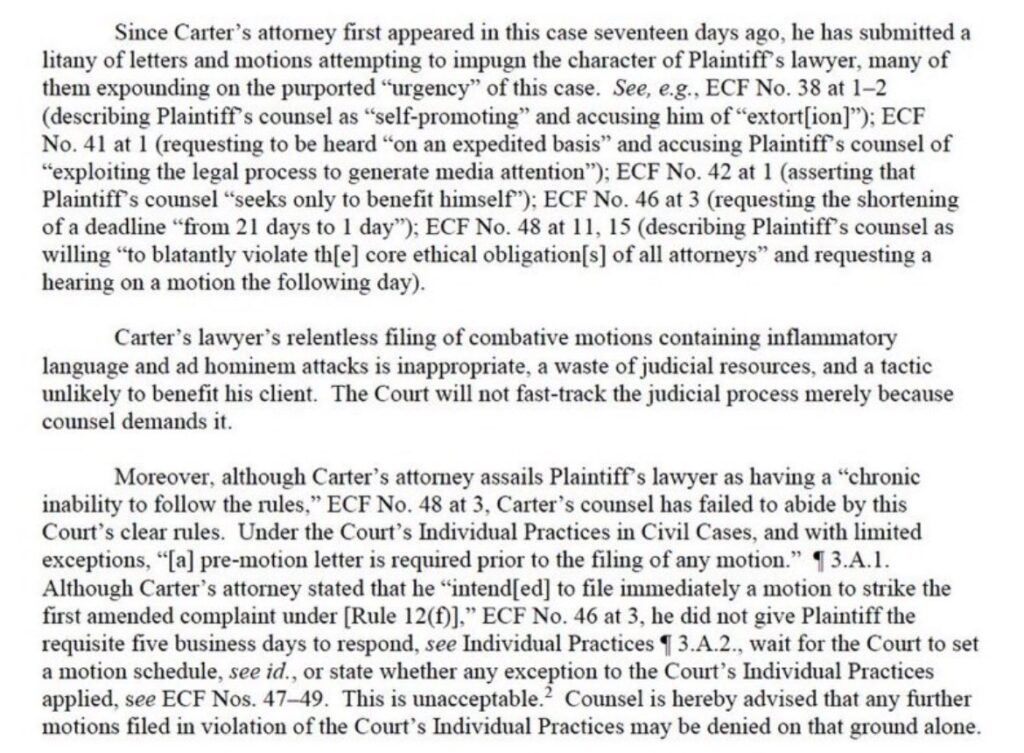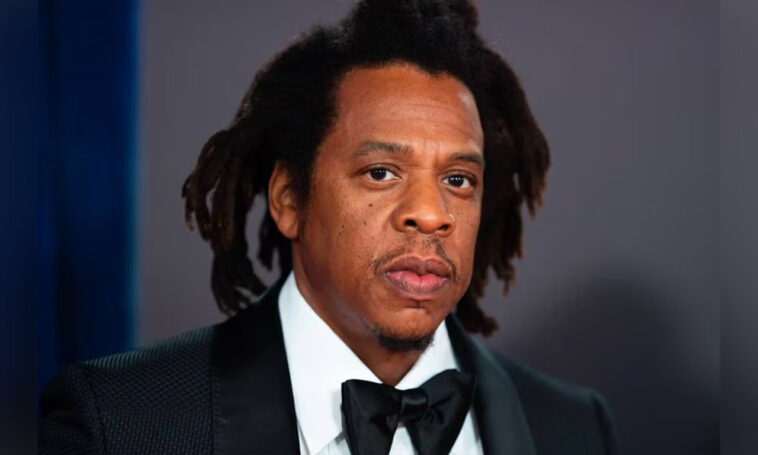A New York judge has recently dismissed rapper Jay-Z’s request to dismiss a rape lawsuit filed by a woman accusing him of sexually assaulting her when she was 13 years old. The case, which revolves around allegations from a 2000 incident, accuses Jay-Z, whose real name is Shawn Carter, and music mogul Sean “Diddy” Combs of assaulting the woman at a post-MTV Video Music Awards party. While Carter denies the allegations, the legal battle has seen sharp criticism of his legal team’s tactics, which have been described as aggressive and inappropriate by the judge.
In December 2023, the woman, who is suing Carter under the pseudonym Jane Doe, amended her original lawsuit to include Carter. The updated claim alleges that after feeling lightheaded from a drink at the event, the woman wandered into a bedroom where she was allegedly assaulted by Carter first, followed by Combs. The case, making Carter the first celebrity to be accused of assault related to Combs, has drawn widespread attention. Combs is facing federal charges for sex trafficking conspiracy and is expected to stand trial in May 2024.
Judge Analisa Torres ruled that Jane Doe could pursue her claim anonymously, granting her the protection of anonymity despite objections from Carter’s defense team, who sought to reveal her identity. The judge’s ruling reflects the growing sensitivity around protecting the privacy of sexual assault victims, particularly when they are minors.
Carter’s legal team has aggressively pursued a dismissal of the lawsuit, citing inconsistencies in the accuser’s testimony. The woman admitted to NBC News that she had made some mistakes in corroborating her account but expressed her desire to stand up for herself and encourage others to do the same. Despite this, Judge Torres rejected the defense’s request for a fast-tracked dismissal, affirming that the case would follow the regular legal process without unnecessary haste.
Judge Torres also criticized Carter’s legal team for its combative approach, which included inflammatory language and personal attacks. In her ruling, she described these tactics as a waste of judicial resources and a poor strategy for defending the rapper.
“Carter’s lawyer’s relentless filing of combative motions containing inflammatory language and ad hominem attacks is inappropriate, a waste of judicial resources, and a tactic unlikely to benefit his client,” the judge stated.In addition to the sexual assault claim, the case has become more complicated with additional lawsuits. Carter has sued the woman’s lawyer, Tony Buzbee, accusing him of trying to extort him with baseless claims. Buzbee, in turn, has filed a lawsuit against Carter’s company, Roc Nation, claiming that the company and its legal team used “shadowy operatives” to coerce former Buzbee clients into filing frivolous lawsuits against him. These counterclaims have added to the ongoing legal chaos, with both sides accusing each other of unethical conduct.

Carter’s attorney, Alex Spiro, has dismissed the lawsuit as “fantasy” and questioned the credibility of the woman’s claims. He also attacked Buzbee for allegedly exploiting the situation for financial gain. However, the judge’s order highlighted the defense’s failure to adhere to court rules, stating that Carter’s legal team had submitted multiple motions attacking the plaintiff’s counsel instead of focusing on the legal merits of the case.
The case against Jay-Z and Combs continues to evolve, and the scrutiny surrounding the lawsuit remains intense. While Carter denies the charges, the legal proceedings are likely to carry significant consequences for his reputation and the broader entertainment industry. As the trial for Combs approaches and Carter faces further hearings, it remains to be seen how the case will play out in court. With both sides entrenched in their positions, the outcome of this complex legal battle could have profound implications for all parties involved.







Join the Community and Be a Part of the Conversation
You must be logged in or registered to post a comment.